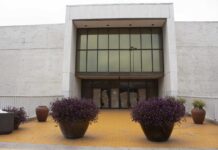Author: Dean DeChiaro
The Richter Traditional Scholarship is primed for one of its best years yet, according to Susan Popko, head of the International Programs Office (IPO). “For the last two years, there has been significant funding that we haven’t had historically,” Popko said.
While a post appeared in the student digest detailing changes to the Richter ASP (Academic Student Projects) Program, a program run by the Undergraduate Research Center, the Richter Traditional Scholarship remains the same.
The only change occurring within the Richter Traditional program is a more guided application process, designed to help students make their proposals as airtight as possible.
“Previously, we would get these 45-page reports that the student had obviously worked so hard on, but they weren’t viable projects,” Popko said. “They weren’t something that could actually be done.” Now there is a new advising system in place to guide applicants through the process, and
IPO is hoping it will boost the number of students who apply, a number which already was up about 40% last year.
The Richter ASP program, which, according to Assistant Director of International Programs Marissa Mofford, is commonly confused with the Richter International Scholarship, is the program that is changing. The changes include a new stipulation that students may only conduct their research during Winter Break, as opposed to during the summer. Also, only about ten applicants will be accepted, and none will receive more than $1,000 to conduct their research.
“The ASP, as I understand it, is just a small program. They don’t fund fully, and it’s really only a small pool of funds for a few students to do some studies per year,” Popko said. “It’s never been the bulk of the Undergraduate Research Program, [as] that office is enormous.”
The Traditional Scholarship can only improve, according to the IPO. “We sent 11 students abroad last year, and we’d love to be able to send about 20 this year,” Mofford said. Some of the past year’s projects included studying the Reading Room at the British Library, the effect of soccer on the lives of HIV-positive children in Tanzania and assessing the efficacy and economic viability of different wood-burning stove models in Rwanda. “There’s a huge gamut of things that students have done,” Popko said.
The first upcoming deadline for students applying to do research abroad during the summer is Oct. 12.
This article has been archived, for more requests please contact us via the support system.
![]()

































